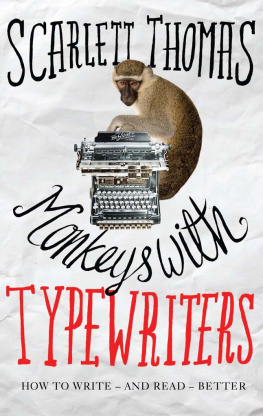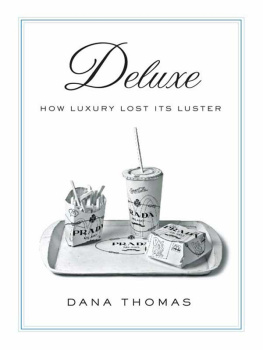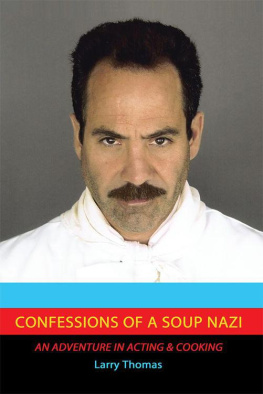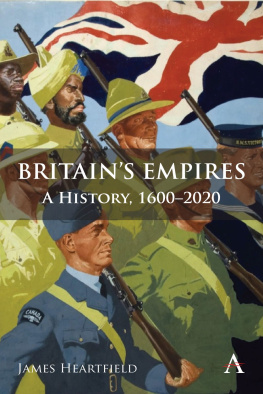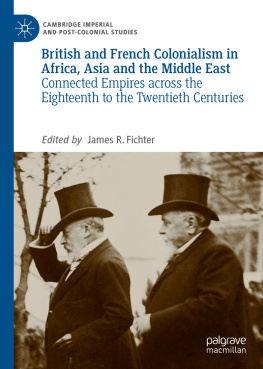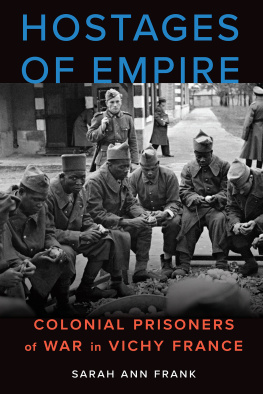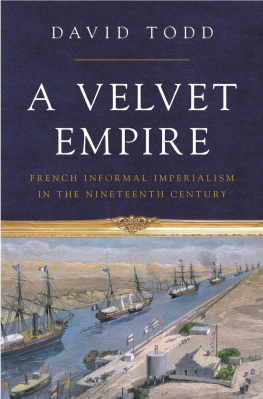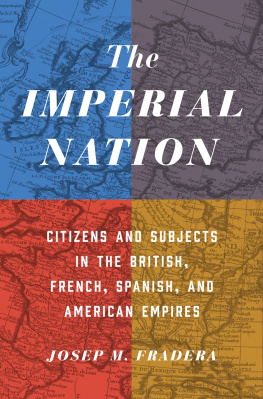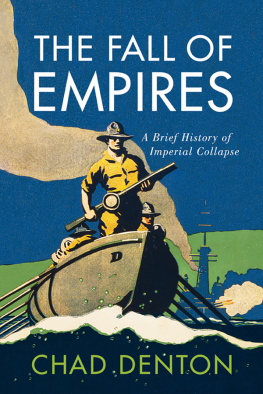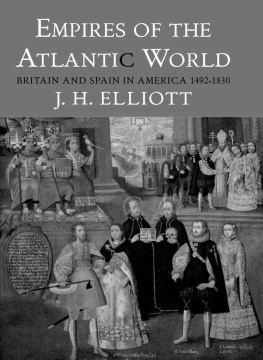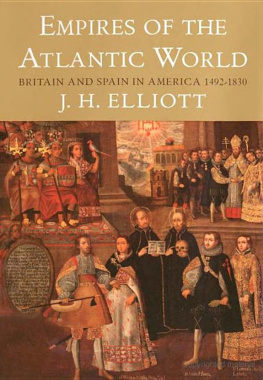FIGHT OR FLIGHT
FIGHT OR FLIGHT
BRITAIN, FRANCE, AND THEIR ROADS FROM EMPIRE
MARTIN THOMAS


Great Clarendon Street, Oxford, OX2 6DP, United Kingdom
Oxford University Press is a department of the University of Oxford. It furthers the Universitys objective of excellence in research, scholarship, and education by publishing worldwide. Oxford is a registered trade mark of Oxford University Press in the UK and in certain other countries
Martin Thomas 2014
The moral rights of the author have been asserted
First Edition published in 2014
Impression: 1
All rights reserved. No part of this publication may be reproduced, stored in a retrieval system, or transmitted, in any form or by any means, without the prior permission in writing of Oxford University Press, or as expressly permitted by law, by licence or under terms agreed with the appropriate reprographics rights organization. Enquiries concerning reproduction outside the scope of the above should be sent to the Rights Department, Oxford University Press, at the address above
You must not circulate this work in any other form and you must impose this same condition on any acquirer
Published in the United States of America by Oxford University Press 198 Madison Avenue, New York, NY 10016, United States of America
British Library Cataloguing in Publication Data Data available
Library of Congress Control Number: 2013937985
ISBN 9780199698271
Printed in Great Britain by
Clays Ltd, St Ives plc
Links to third party websites are provided by Oxford in good faith and for information only. Oxford disclaims any responsibility for the materials contained in any third party website referenced in this work.
Acknowledgements
Those well versed in reading between the lines of an authors acknowledgements will know that these brief lists of debts incurred sometimes have their own codes, not dissimilar to those of broadsheet obituary columns. Thus, the heat rises as one moves from the rather impersonal thanks to funders, libraries, and archives, through the warmer expressions of gratitude to colleagues and friends, to the final statements of devotion to loved ones whose tireless forbearance is what really made everything else possible. I dont propose to buck the trend here, but the danger is that the book itself comes to resemble something born out of adversity, a creation that only just made it. This is not quite how the making of Fight or Flight seems to me. For one thing, its had a very long gestation as the product of two decades of teaching university students. For another, its as much the result of reading the work of others as of archival research in France, Francophone Africa, the United States, and Britain. Most of all, its been a pleasure to write. For all of that, I thankI hope not too impersonallymy students, my fellow historians, and Luciana OFlaherty, Matthew Cotton, Emma Barber, and Miranda Bethell at Oxford University Press.
The Leverhulme Trust helped make the final writing of the book so enjoyable by funding a Senior Research Fellowship between 2009 and 2012. This, too, merits real warmth and more than a single sentence, but I hope the trustees will find the book some sort of recompense for their support. Archivists and librarians at the various institutions cited in the notes and bibliography were, without exception, welcoming and accommodating. Andrew Barros, Talbot Imlay, and Peter Jackson, Canadians with sharp eyes for the paradoxes of Franco-British relations, helped me think through my ideas. So, too, did David Anderson, Martin Alexander, Liz Buettner, Alison Carrol, Georg Deutsch, Claire Eldridge, Martin Evans, Chris Goscha, Jim House, Sam Kalman, Simon Kitson, Fabian Klose, Mary Lewis, Fred Logevall, Patricia Lorcin, Neil MacMaster, Joe Maiolo, Philip Murphy, Natalya Vince, and Mathilde von Blow. In Paris, Raphalle Branche, Emmanuel Blanchard, Jean-Franois Klein, Emmanuelle Sibeud, and Sylvie Thnault have guided me through the complexities of French colonial affairs.
Stacey Hynd, Justin Jones, and Andrew Thompson, colleagues in global and imperial history at Exeter University, read chapter drafts, providing vital help along the way. Another, Richard Toye, went through the entire typescript, a typically generous act for which Im very grateful. My mother was equally kind, scrutinizing several chapters and reminding me what isand isnta verb. If the book makes sense, it is in no small measure down to her. Thanks to Chouie, a small cat with a big miaow, for enforcing the tea breaks. More than anyone else, Suzy made the whole thing possibleand makes everything worth it.
Contents
On the morning of 1 November 1954, an Algerian baker gathered his family together to share some important news. A little-known revolutionary movement calling itself the Front de Libration Nationale, or FLN, had mounted over fifty coordinated attacks against public buildings, police stations, and communications centres throughout the French colony. Writing almost half a century later, the bakers daughter, Louisette Ighilahriz, recalled her fathers words. Its the end of humiliation, he said. Louisette soon proved her devotion to the FLN cause. Using the pseudonym Lila she couriered weapons and scraps of intelligence to fellow militants, her secret cargo sometimes hidden inside bread baked by her father. But it was in the summer of 1957, during the final weeks of the notorious Battle of Algiers, that her life changed for ever. She and a group of fellow combatants were ambushed by French parachutists near Chebli, a town just south of the capital. She was shot and wounded, the prelude to years of imprisonment. A story of anti-colonial commitment, of bravery, of deprivation, Louisette Ighilahrizs Algerian war would come to the French publics attention for a different reason entirely. Writing in Le Monde on 20 July 2000, she revealed what her parachutist captors had done to her. A harrowing autobiographical account published ten months later went further still.
As summer turned to autumn 1957 Ighilahriz lay bandaged and in plaster in the Algiers Mustapha hospital. There, she was injected with the truth drug Pentothal. She said nothing. Still bed-ridden, she was then transferred to one of the citys army interrogation centres. Frustrated by her defiance, a parachutist captain took charge of proceedings. He cut her bandages with a bayonet. He prodded at her wounds. Then he raped her with all sorts of objects.
These histories of people disfigured by violence and violation, of minds warped by colonial conflict, are bound up with the ways in which a large colonial empire came to an end. Theirs are stories of fight and flight. Of fights between opposing ideas of authority and legitimacy, one imperial, the other rooted in local demands for greater freedom. Of eventual flight as colonial authorities either negotiated their way out or packed up and left in de facto surrender to their local opponents. The examples above relate to Algeria, a French-ruled territory. But equally troubling accounts have emerged from Britains colonial record.accelerating rate of historical change, one that would see these once mighty empires brought down within two or three generationsin historical terms, the blink of an epochal eye.
By the end of the 1950s, only a few years after Louisette Ighilahriz began her struggle, the French and British empires were approaching dissolution. 1960. The year that marked John F. Kennedys election, a widening Sino-Soviet split, and the first commercially available contraceptive pill, was also the year of Africa. It was so called because seventeen African countries achieved independence from their European rulers. Some, including the vast tropical domains of the former Belgian Congo, descended into revolutionary turmoil. But most, including fourteen former French colonies below the Sahara, took their place on the world stage relatively peacefully.
Next page

